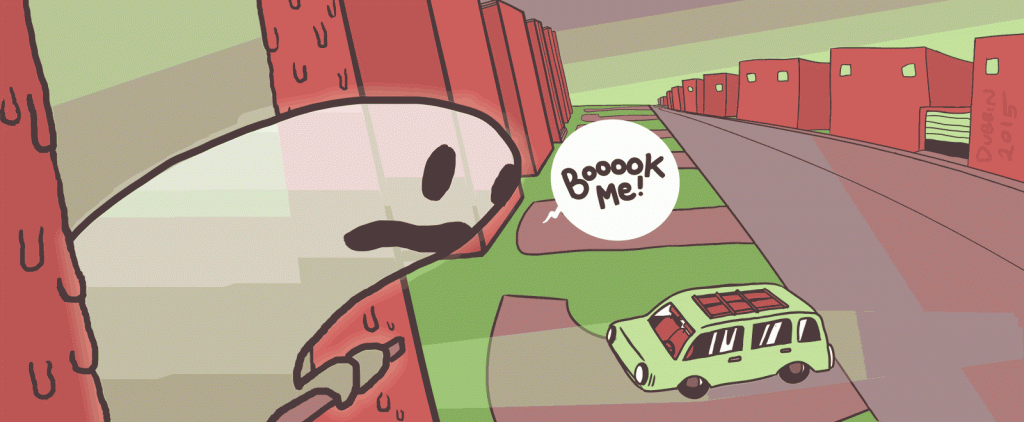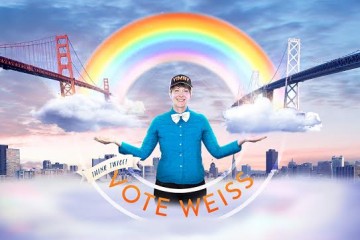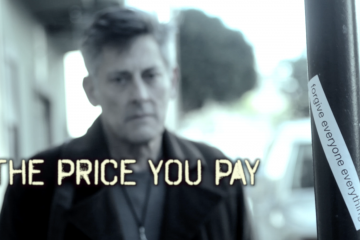The Sharing Economy is a Lie
Lets Just Call It What It Is
I used to drink the altruistic Kool-Aid that the omnipotent “sharing” economy is taking over the world. The harsh reality is that there has been a lot less sharing going on than advertised.
Since sharing is a social exchange that does not i nvolve profit, by definition, adding the term ‘economy’ to it, is an oxymoron. We should start calling it what it is: a peer-to-peer economy (or what Hillary Clinton recently referred to as “the gig economy”), which allows peer-to peer exchanges through a digital intermediary.
nvolve profit, by definition, adding the term ‘economy’ to it, is an oxymoron. We should start calling it what it is: a peer-to-peer economy (or what Hillary Clinton recently referred to as “the gig economy”), which allows peer-to peer exchanges through a digital intermediary.
Michel Bauwens, founder of the Foundation for Peer-to-Peer Alternatives, says, “Actually it’s anti-sharing, because they are commodifying resources that before would have been shared for free. Like, if you had a spare room in your house you would invite some friends and now you say, why should I share it for free, if I can make some money out of that?”
Companies such as Yerdle, Timebanking, WWOOF-ing, or FreeCycle can be legitimately categorized as a “sharing economy” platform because they enable peer-to peer exchanges of underutilized resources, where people are saving or making money, but revenue is not the focus.
BRANDING DOESN’T MAKE IT TRUE
 AirBnB, the self proclaimed poster child company for the “sharing economy,” re-branded their logo to be a universal symbol of sharing ‘people, places, love and community’ (come on, it looks like a vagina).
AirBnB, the self proclaimed poster child company for the “sharing economy,” re-branded their logo to be a universal symbol of sharing ‘people, places, love and community’ (come on, it looks like a vagina).
Global Head of Community and Mobilization at Airbnb, Douglas Atkin, is said to be responsible for the strategic “sharing economy evangelism.” He wrote a book titled ‘The Culting of Brands: Turn Your Customers Into True Believers’, studying cult brands like Apple to Harley-Davidson – as well as real cults like the Unification Church and the Hare Krishna movement.
But how does renting out your home for a profit actually equate to sharing? Oh that’s right. It doesn’t.
Why do they think most “airbeibers” (as I nicknamed them) opt to have the entire place to themselves, instead of sharing the space with the owner at all? Its because Airbnb consumers clearly want convenience, and to make savvy purchases at a lower price – not to share.
THE SERVANT ECONOMY
Disgruntled TaskRabbiters, such as Emmanuel Lemor, believe the on-demand marketplace is adultering the term “Sharing economy” with their contrary business model.

Lemor, who used to be ranked 23rd out of 16,520 rabbiters, says “The new platform almost made us indentured servants. We had to answer tasks sent to us within X minutes and accept X % of Tasks. When they started limiting our schedule, requiring rabbiters to wear uniforms, dictating our hours and how many jobs we had to take, they were treating us like employees, but without any of the traditional benefits.”
He recounts how when the platform first came it, it allowed for self-motivated, driven entrepreneurs to excel as their own bosses. They could work as little or as much as they saw fit, mostly on their own schedules. When they made the big ‘Pivot’ after round C funding, everything changed.
Even Democratic presidential candidate Hillary Clinton, who spoke at The New School in NYC yesterday said, “This on demand or so called ‘gig’ economy is creating exciting opportunities and unleashing innovation, but it’s also raising hard questions about workplace protections and what a good job will look like in the future.”
Currently, 1 out of 3 Americans are “freelancers”, according to a by independent research firm Edelman Berland. By 2020, it is estimated that 40% of Americans will be.
Lemor concludes, “It often feels that TaskRabbit, much like Couchsurfing.com, has the mentality of ‘there will always be more people willing to do Tasks/Host’ so it doesn’t really matter how we change things.”
IS IT ABOUT SHARING OR THE SHARES?
Before CouchSurfing.com transitioned to a B Corporation (after years of trying to get non-profit status), I CouchSurfed through 6 continents and 21+ countries. It was life-changing, to say the least.
When CouchSurfing took investment, the CEO had to prioritize “fiduciary duty” to their shareholders over the community’s wants. CouchSurfing staff members were replaced by those with impressive resumes, secondary to their understanding and passion for CouchSurfing itself. The CouchSurfing app and website functionality faltered into a glorified facebook-like bnb site. The unique ethos that once made it genuinely about sharing, gifting experiences, and paying it forward, started to dissipate.
But does sharing have to remain an empty and hollow tagline they only use in their advertising campaign?
THE PATH TO SHARING
A true Sharing Economy can not exist, when the primary focus is to appease shareholders and create profits. A true Sharing Economy is about breaking through to the true essence of what money is: which is a means to experience. It’s about saying goodbye to the old ownership models, which are non-efficient and proven to further the income inequality gap. Instead, we must embrace an economy that enables us to collectively get our needs met through sharing our underutilized resources, so we can all thrive!
Even the late George Carlin stated, “We’ve learned how to make a living, but not a life. We’ve added years to life not life to years. We’ve been all the way to the moon and back, but have trouble crossing the street to meet a new neighbor. We conquered outer space but not inner space. We’ve done larger things, but not better things.”
If we want to see a true sharing economy movement rise, we are going to have to start non-profits and co-op alternatives with an ethos of sharing underutilized resources that benefit the greater good. Until then, the outcome points to the reality that:
When shareholders are involved, it’s really all about the shares, not the sharing.
Top image from Fusion











